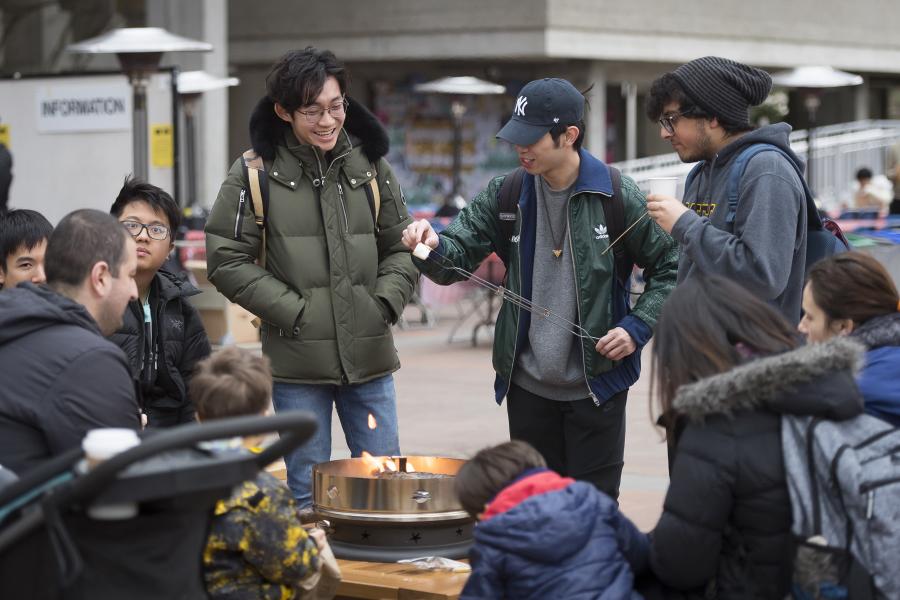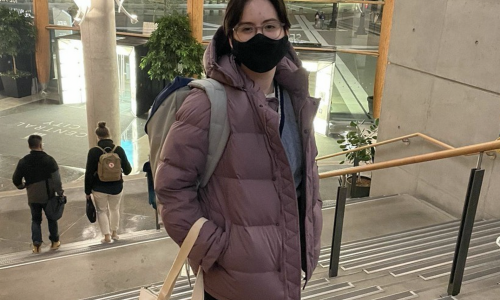
Physical health is an important part of your overall well-being, and is closely linked to mental health. Supporting your physical health goes beyond having a regular exercise routine– it consists of a number of additional habits and practices to consider around things like sleep, food, sex, and technology.
-
Set small goals. Take regular breaks from the computer throughout the day, and move or stretch and head outdoors if possible.
-
Take phone breaks. Staring at a small screen can strain your eyes, neck, and back so make sure you pay attention to your body’s cues and set limits.
-
Check out SFU Health & Counselling's digital well-being tips on how to reduce eye strain and use technology mindfully, and set up an ergonomic space that’s good for your body and mental well-being.
- Aim for 7-9 hours of sleep each night. Try to go to sleep and wake up at the same time every day, even on weekends.
- Practice a pre-sleep routine to allow yourself time to wind down away from excitement or anxiety. Try to stop using the phone 30 minutes before bed, and switch to herbal tea if you’re used to consuming caffeine, alcohol, cannabis, or tobacco in the evenings.
- Create a sleep-friendly environment that’s dark, cool, quiet, and comfortable. Try to make sure it’s away from your study or work space so you can also keep your study and work thoughts separate.
-
Consider checking out Canada’s Food Guide to get some ideas for creating nutritious, balanced meals. You can find foods that nourish you from the guide and also foods that bring you joy, or keep you connected to culture and comfort. Try to eat a variety of different foods to stay balanced so you get the nutrition you need.
-
Drink water regularly and before you start feeling thirsty. Bring a water bottle with you so you can stay hydrated throughout the day.
-
Food is a celebration and brings people together. Make plans to eat with others when possible, or check out ways to get involved with community gardens at Embark Sustainability Society or other food projects to connect more with people and where your food comes from.
-
Make a meal plan at the start of each week. Take a look through Leanne Brown’s cookbook Good and Cheap for ideas on how to eat well on $4/day, or attend a community kitchen workshop for inspiration.
-
Learn more about the Food Education and Food Security Program on campus.
-
Move your body in ways that feel good to you. Schedule exercise or movement breaks with someone else so you can support each other with being active.
-
Take short breaks every hour or two and add 10-minute movement activities so you can keep energized, focused, and feeling your best.
-
Plan to do something active at least once a week – and choose something you enjoy. Explore different things: try a drop-in class by SFU Rec, or see what’s happening at your nearby pool, community centre, or rec league.
-
Connect with a healthcare provider to talk one-on-one in a safe environment about your sexual health. Get tested when needed, talk about contraception, and keep up to date with vaccines or screenings and safer sex practices.
-
Be sure to communicate with your sexual partner(s) if you have questions or concerns, and be mindful to consider your own sexual well-being around things like respect, pleasure, and self-esteem.
-
Seek information and support around issues related to consent, pleasure, gender or sexuality, and your relationship with sex. Talking to a professional can ensure you are mindful of your values, beliefs, and rights when it comes to sex.














